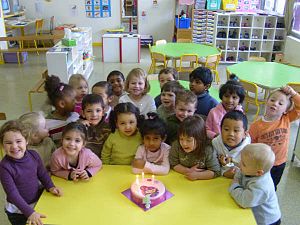A recent study examined families with children enrolled in Head Start to see if they were personally involved in their children’s education, and to what degree such involvement is correlated with positive outcomes for children. The results were published in the March 2011 issue of The Elementary School Journal by the University of Chicago Press.
The study looked at 3,100 Head Start children and families. Researchers interviewed parents about their home involvement and how it related to students’ performance in the classroom. They talked to center directors about family outreach practices, tested for reading comprehension and vocabulary (including how often parents read to their children), and rated the enthusiasm students had for their learning.
Taking into account all these variables, their data suggest that families in poverty are generally very engaged in the education of their children, a finding that stands in contrast to the common perception that low-income families are not as involved in their children’s education as those of a higher socioeconomic status.
However, this finding appears at odds with the underachievement of many Head Start graduates, which indicates that there may be other factors other than parental involvement — such as lack of funding, time restrictions, and other factors — that are holding back the success of Head Start students.




Leave a comment